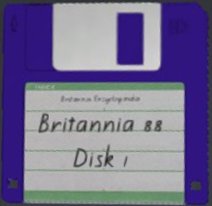
I just needed some paracetamol for the first few days after the operation. “Because the actual cut is smaller, I am recovering more quickly and I didn’t need as many painkillers. “The confidence I had in Neal Banga and Dr Ahlawat definitely made it less stressful for me,”said Mr Patel. The donor operation is routinely performed using keyhole surgery, but using keyhole surgery for the recipient operation is a new surgical technique that has only emerged in the last few years.Vinod, 46, from north London, said the recovery time was much shorter than he had initially expected. Vinod Patel was one of the two patients undergoing the kidney transplants – receiving a kidney from a family member. We hope to carry out 10-15 robot-assisted transplants this year.” Every other floppy disk has to be unlocked by. The red floppy disk stands beside the computer and is unlocked from the beginning as well. It is automatically unlocked from the beginning. There is always a floppy disk inserted into the floppy disk drive named 'Controls'. On the left side of the main menu desk is a computer with a floppy disk drive. Everyone worked together to get this right for our patients – the surgeons, the nurses and the an-aesthetists. Floppy Disks are located on Nigel's Desk. This means that the patient has a much smaller wound compared to a traditional open kidney transplant, with a lower risk of complications, such as infection, which is a particular risk for transplant patients as they take immune-suppressing medication after their operation.In the future, the surgeons hope that this technique can be used for overweight patients who would not otherwise have been suitable for an open kidney trans-plant.Neal, who has been a consultant trans-plant surgeon for five years, said: “I am really pleased with how the operations have gone and I’m proud of what the team has achieved. Robotic surgery allows the donated kidney to be transplanted into the recipi-ent patient using keyhole surgery. Robotic surgery consultant Ravi Barod, and consultant transplant surgeon Neal Banga, have been working together for the past six months to enable this new type of surgery to take place at the RFH for the first time. The RFH has become one of the first hospitals in the country to carry out a kidney transplant with the help of a surgical robot.Two patients received kidney transplants at the end of last year with the help of the Da Vinci Xi robot – a £2 million surgical robot which until now has been used for kidney cancer surgery. Neal Banga and Tana Tanabalan with the Da Vinci Xi surgical robot.

With the Da Vinci Xi surgical robot: surgery team (from left) Sam Aleebux, Ravi Barod, Pedro Silva,


 0 kommentar(er)
0 kommentar(er)
